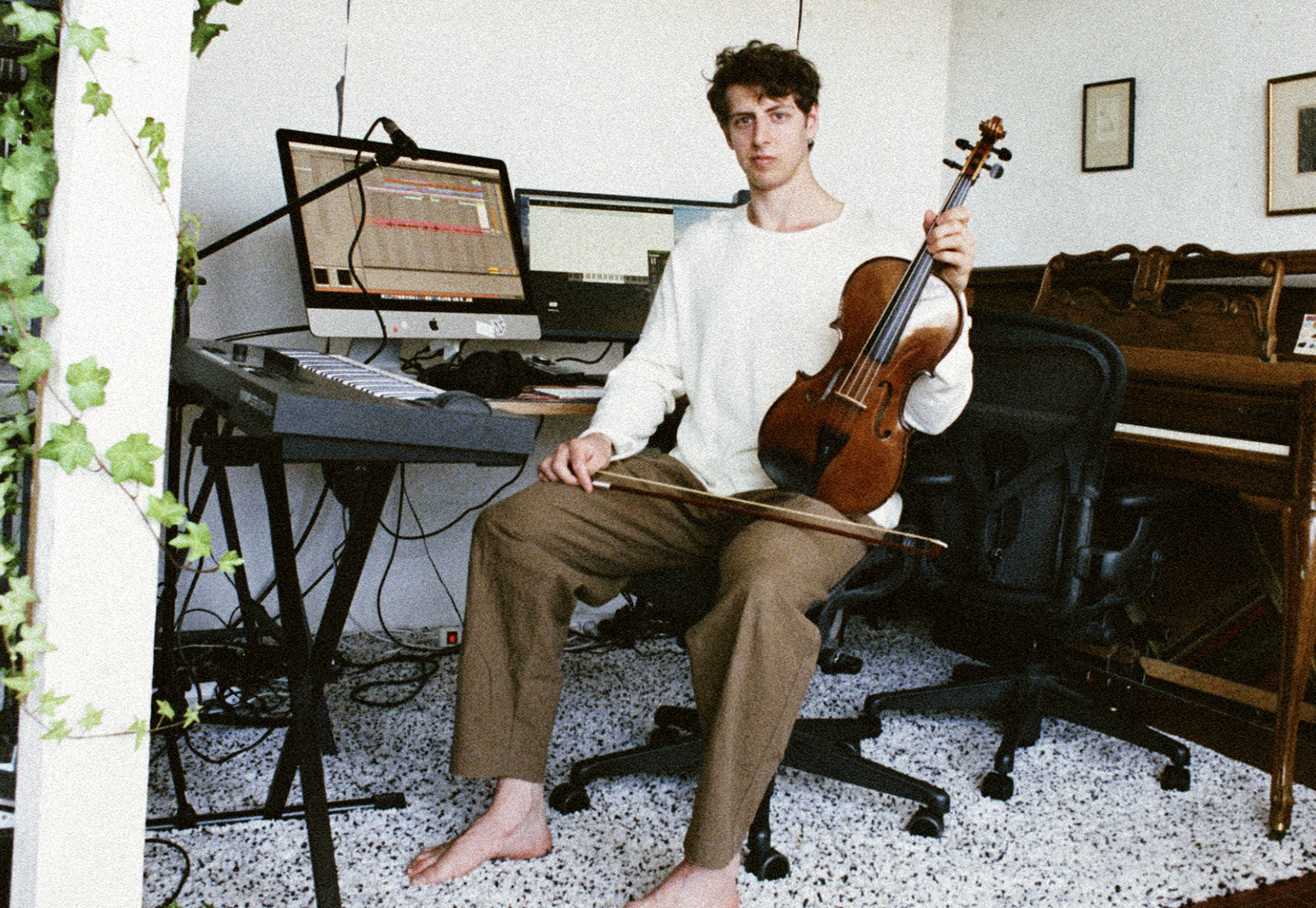 Features
Features
“It's me versus the demon”: Nathan Micay’s new album blends darkness and euphoria
Andrew Moore speaks to Nathan Micay about the making of his new album 'To The God Named Dream', how writing scores has helped his process, and being a hardcore Swifty
You would be forgiven for thinking that Nathan Micay doesn’t have time to make a new album. Four years have passed since the Canadian producer released his debut LP 'Blue Spring' on LuckyMe, and since then he has been hard at work in the studio, and behind the mixing desk, working on scores for HBO’s award-winning drama Industry and the lauded NSA whistle blower feature film Reality starring Euphoria’s Sydney Sweeney.
His rise in the scoring world has meant that ‘club’ music has had to take something of a backseat, but new tracks have been circulating thanks to friends and peers in Peach and Avalon Emerson, igniting a slew of futile Shazam requests in the dance.
Now, Nathan is releasing 'To The God Named Dream'; a post-contemporary electronic music epic that blends the producer's typical rush of euphoria with the skills he has picked up from the scoring world.
Inspired by traditional RPGs and taking influence from the pop-world – looking at you, Taylor Swift – the now Copenhagen-based artist is always focused on creating interesting and interactive listening experiences. Mixmag sat down with him about just how he did that on his forthcoming album.

When did you first get the idea for the album? Has it been on ice for a while because of the scoring work or did it come together quite quickly?
I started thinking about a new album during the pandemic, I guess. I was pretty deep into Industry Season One at that time. I didn’t have a lot of time on my hands as the scoring work is so labour intensive, but I was very aware that it’s important for me to have one foot in dance music. I didn’t want to just suddenly float to a different world and abandon the love and stuff.
I started writing a couple demos and Dom, from LuckyMe, thought that a couple were cool and told me to follow the thread. When I finished Industry I started on this Netflix series called The Last Bus, and in doing that I got to explore real instruments and out-there percussion from real life sounds and contact libraries. On Industry it’s very streamlined synths, now that I have the experience under my belt with the Netflix series I thought I could take that to the album and make it truly whacky and put as much into it as I can.
I finished the show in the fall of 2021 and that’s when I started coming over to Copenhagen. My partner had moved here and I went back and forth for a little bit. I have this big iMac desktop and I’d bring it with me and set it up in this tiny Copenhagen flat and start getting ideas down.
It became a real exercise of having limitations from the computer and all the samples I’d recorded from the show. No sound was out of bounds, there were tens of thousands of samples I could draw from. Once I finished writing the album it became clear I didn’t have the time to mix it. By this point I was working on Industry Season Two, in early 2022, so I hired Aether's Spring from Studio Moonchord to mix it. That was the first time I’d ever put my music in someone else's hands like that
Read this next: Video games are influencing a generation of electronic music innovators
'Blue Spring' was accompanied with a graphic novel that told a story. What kind of story are you telling with 'The God Named Dream'? The press text says the album was inspired by classic RPGs.
I don’t play video games at all, the RPG element refers more to games like Dungeons & Dragons. During the pandemic I got really into lore, about things that I didn’t even properly follow. I must have spent a whole month reading about Warhammer.
One day I stumbled across Hellraiser. I’d seen it when I was in my early teens, but it had some pretty cool lore with the demonic thing. I thought it was kind of like Jumanji for adults.
A lot of my music starts by listening to old library music from the '70s and '80s; old records that were supposed to sound like the future or nature, or compilations of stuff that you can use on your own TV licence free. I use that stuff as a starting point to find samples.
I had all these old records coming during the pandemic and I thought what if I accidentally ordered some haunted record that when played unleashed some kind of demonic force on the world like in Jumanji or the puzzle box in Hellraiser.
I ran with that idea and came up with this idea surrounding 'To The God Named Dream'; an interdimensional being haunting your dreams if you play this record, and the only way to stop it is if you beat him in a game.
A lot of this album is noticeably darker around the edges than my typical music, but it also has my trademark rush of euphoria. So it’s this juxtaposed thing where it’s me versus the demon.
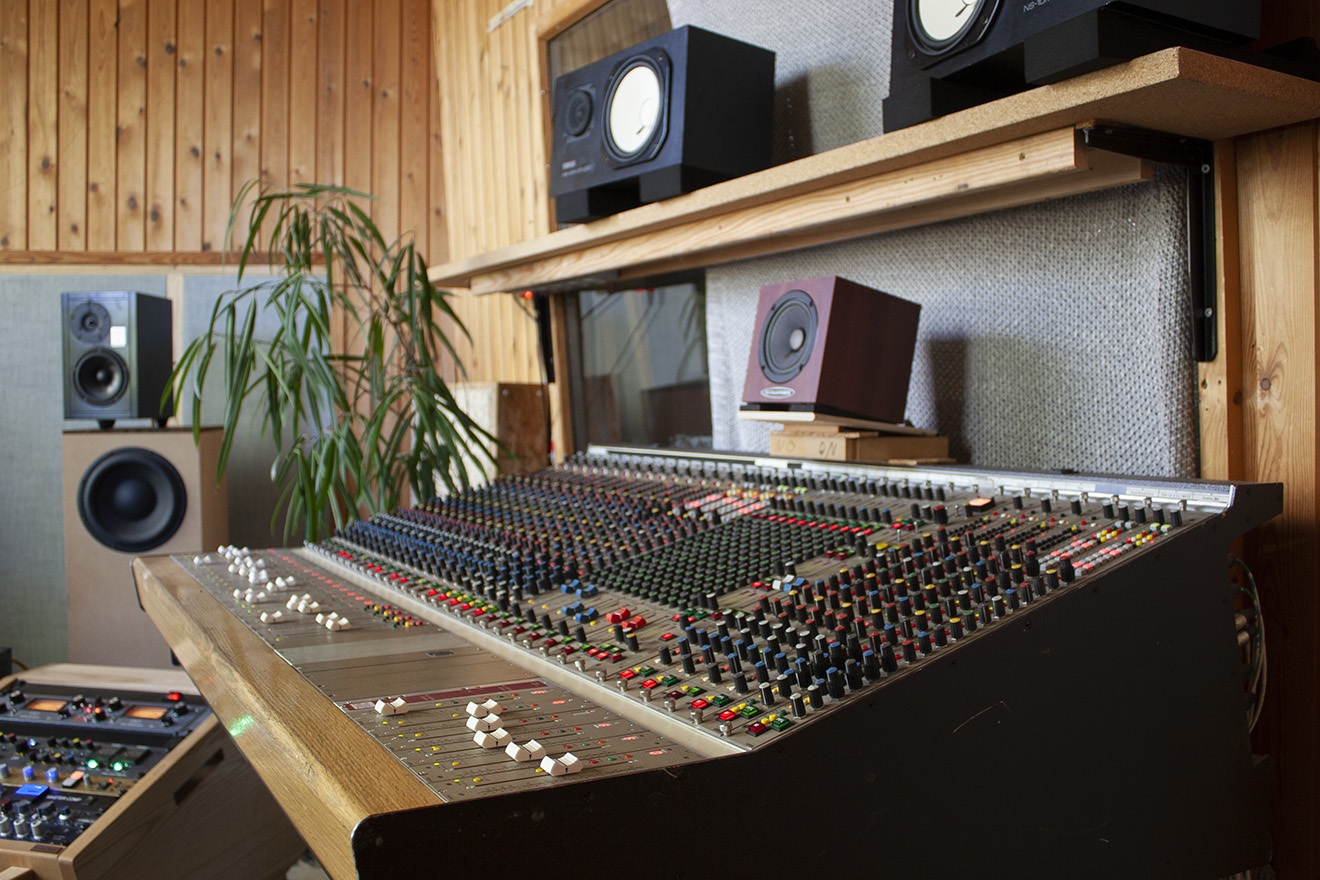
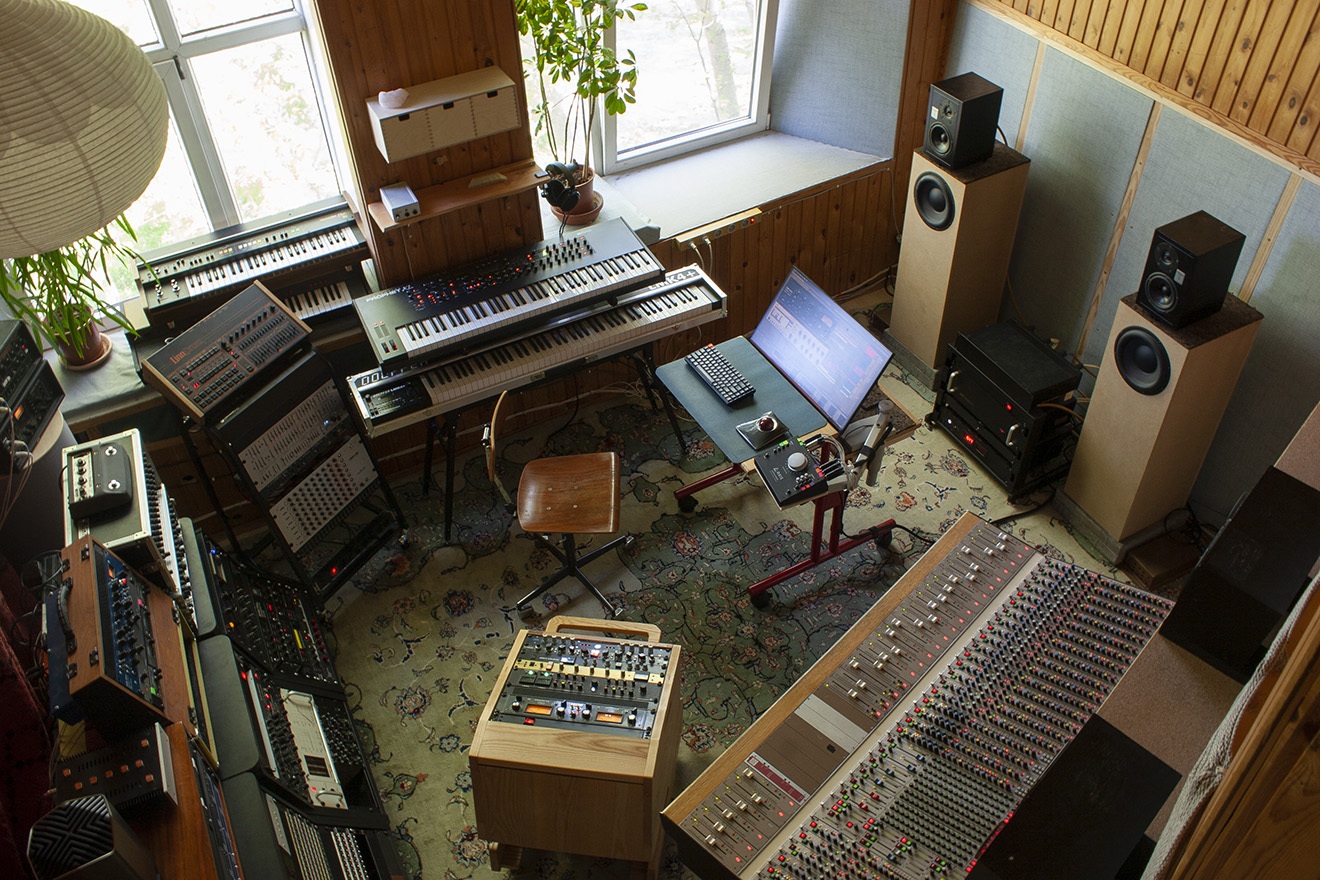
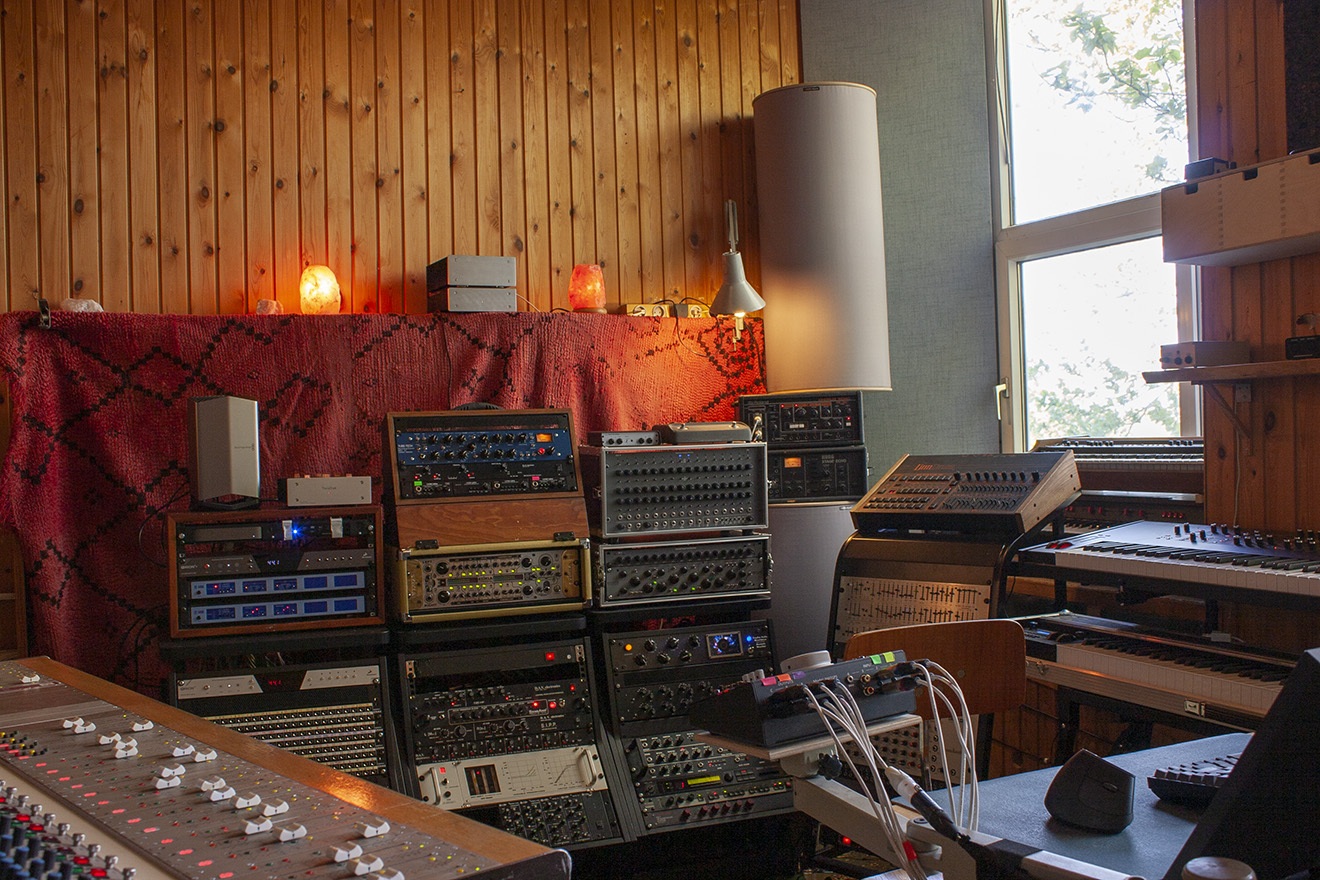
Were there ever any moments that you thought the album might not happen? How do you deal with creative blocks?
Through scoring I’ve been able to get over this idea of creative blocks. There are obviously some days I’m more inspired than others, but with scoring even if you don’t feel it that day you still have a job to do - they don’t care.
I read this interesting article on C.S Lewis about when he was a newspaper reporter. Someone asked him years later, after he had written Narnia, what do you do when you don’t have any inspiration to write a book? He said when he was a newspaper writer they didn’t care, it was his job to do his daily column so he got on with it. That’s how I look at my job now, you create your own luck. If you start working something is bound to happen, that’s definitely what happened with this album.
The press text also says that you had been listening to a lot of pop music, from Taylor Swift to Madonna. I feel like the connection between pop music and underground electronic music has never been so strong with producers like Parris, Courtesy and Eden Samara all drawing inspiration from this and bridging the gap between the underground and mainstream - is this something that you feel also and how did that feed into the album?
There probably hasn’t been as little a barrier between the two since William Orbit produced for Madonna. Now it feels like there is no picking from a sub-genre, it’s all meshed and intertwined. A lot of the PC Music people are now producing for Caroline Polacheck. Oneohtrix Point Never just produced the new The Weeknd album. It feels like a natural meeting of worlds.
There’s more niche pop underground electronic music stuff with Courtesy, Eden Samara and my good friend JASSS who just produced a pop-influenced album on Ostgut Ton last year. Avalon Emerson just released her new album of dream pop.
Read this next: Beauty amid the chaos: Why Avalon Emerson made a dream pop album
It’s very easy to become sucked into club culture when you’re doing it week after week, so two years of not doing that will get you to a point where you’re like, oh. It’s probably the same for a lot of pop stars; the pandemic probably gave them a lot of time to explore different producers that they wouldn’t have ordinarily had the time.
I’m a huge Swifty, I have been for at least 10 years. I got into her through my country stuff; when I was in high school I played banjo and made a lot of country music. Once of the first songs I learned on banjo was 'Our Song'. It’s got this really cute banjo lick. With this album, I finally felt like it was my time to explore that more. There’s a melody on the track ‘Wishes For Fishes’ that is directly influenced by Taylor Swift.
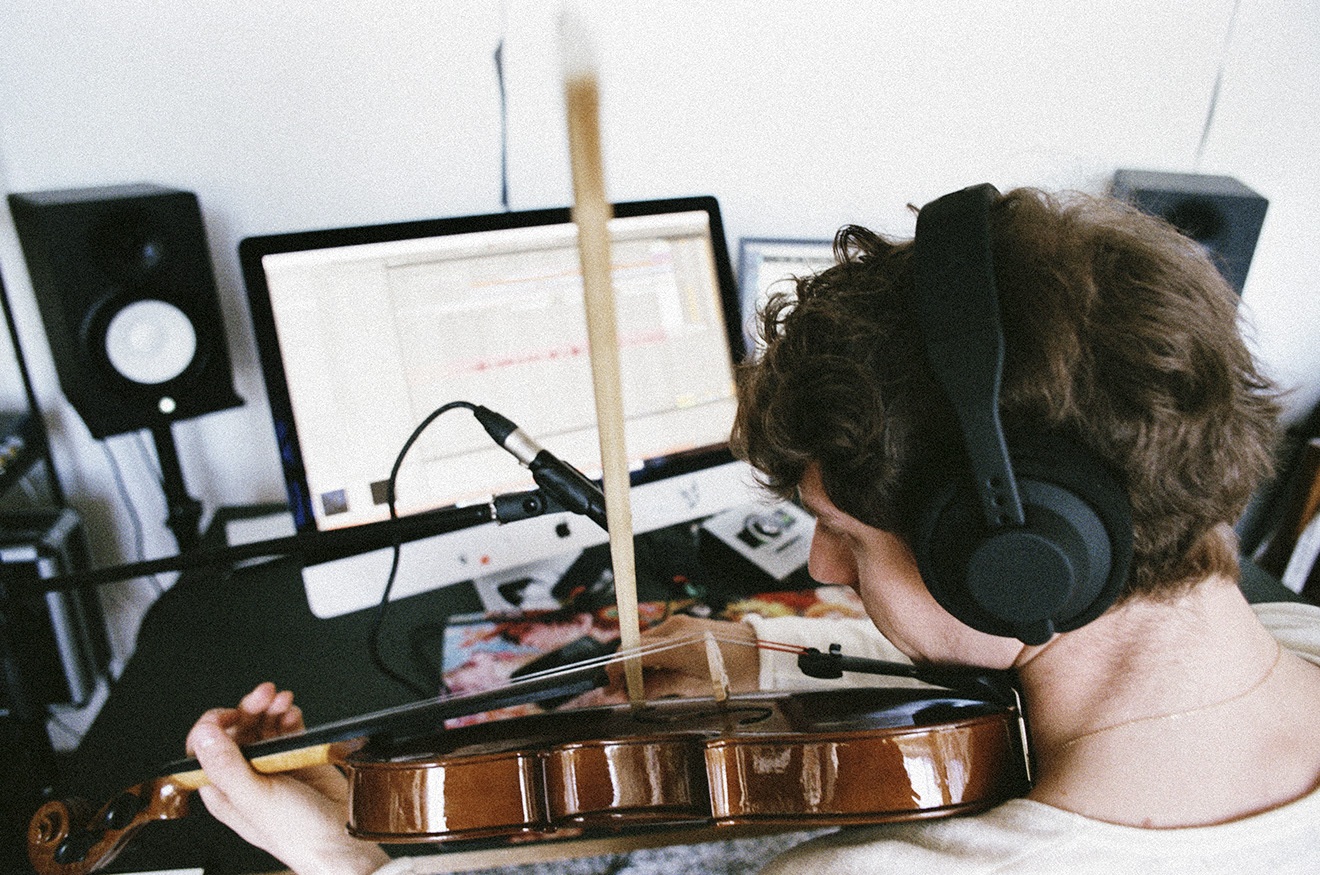
I read in your interview with Crack that you loved working on the Industry score as you love when characters have themes to work with. What kind of themes and characters were you thinking about when creating the narrative for the album?
On every track there’s a duality, it’s probably most present on ‘Fangs’. The first half is an epic dance number and the second half is crazy dark. It’s this back and forth between the two on every track, apart from the one ambient track on there ‘The Death Of FOMO’.
I read that your first time using live strings was on your casette 'The World I’m Going To Hell For', and that you only had one plugin on your laptop prior to being hired for Industry. How has your software, live recording and hardware setup evolved over the years? How has that impacted the album?
Yeah, majorly. Before getting hired for Industry I had an 8GB RAM 2014 laptop. It served its purpose but it became very clear very quickly that that wasn’t going to work. Luckily I had some savings so I got this 64GB iMac and in doing that I suddenly had this powerful machine and a big screen. I’m a dual screen guy now. I can’t believe that I was ever to make as much music as I did on that 2014 laptop. By the time I got to the end of it it could barely open up a project file.
I also read in an interview with Dazed that you were doing a remix for someone and it felt weird putting a kick drum on it. For me, the beatless parts of 'To The God Named Dream' are the moments where the album truly shines and where I become totally engrossed. Barker has experimented with this in the past, as has Courtesy. Is the art of making people move without a kick something that is interesting to you right now in a club music context?
Immediately I thought of Barker when you said that, he’s one of the most interesting artists to explore it, even with a limited catalogue. Oneohtrix Point Never makes pretty interesting music that’s kick drum-less. I’m just now getting back into clubland and started DJing again, so we’ll see how I feel when I’m in the club.
I’ve kept tabs of what’s going on in clubland and it’s very kick drum oriented now. It feels like everything is about the big kick and one hundred and god knows what BPM. It’s something I’d like to explore more of, but I’m not going to force it on anyone.
Read this next: Has dance music got harder and faster?
The album comes with an original multiplayer board game on the sleeve. How did you come up with the format of the game and how does it tie into the release?
That’s all Dom, I can’t take much credit for it. One thing we were aware of with this was that we didn’t want the vinyl release to be crazy expensive, we wanted to keep it real. There’s a QR code that leads to a dice rolling app and you pick your own pieces. It falls into that Stranger Things, Dungeons & Dragons type realm.
You don’t need to use the pieces, you can use whatever you want to around the house. When I was younger I would use Star Wars figures as I thought they looked cooler than the figures that came with the game.
'To The God Named Dream' is out now, get it here
Andrew Moore is a freelance writer, follow him on Twitter



